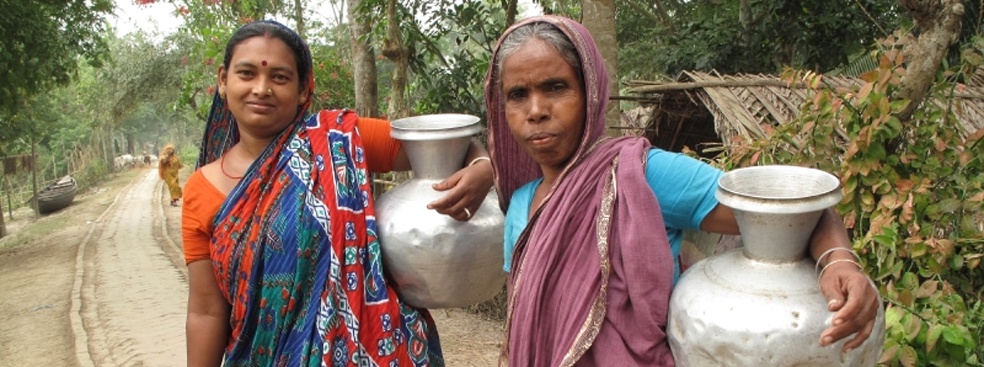When Franck Riboud, CEO of Groupe Danone, and Muhammad Yunus, the Nobel Prize winning economist and founder of Bangladesh’s Grameen bank, met by chance back in 2005, a social business model was born. One in which two major organizations would join forces to combat malnutrition and provide employment opportunities to Bangladesh, one of the world’s poorest countries. The product: Shokti Doi, a yogurt rich in essential micronutrients, missing from many Bangladeshi diets.
The goal was to invest minimum capital all the while paying top price for labor and raw materials - without resorting to handouts. Although the pair agreed the social goals of their business should come first, the challenge would be to ensure financial sustainability. To do this, Grameen and Danone had to call into question traditional business models.
Things were kept simple. The pilot factory in Bogra, Bangladesh, was custom designed to meet the specific needs of the project. A minimum number of automatic devices and complex machinery were included so as to increase the need for labor and thus create more local jobs, all while reducing initial investment costs and limiting future maintenance costs. This also helped keep the carbon footprint and environmental impact of the plant low.
The Grameen-Danone 50:50 joint venture partnership - Grameen Danone Foods Ltd. or GDFL - lent itself perfectly to the ambitions of the project. In terms of intangible assets, Danone brought its skills in design, production, quality and nutrition. Grameen brought to the table its highly developed network of branches throughout the country, which made it an expert in the distribution of products and services to Bangladesh’s rural communities.
Indeed, a key factor to making this project successful was the grass roots experience brought by the Grameen bank, especially when it came to the sales and distribution of the product. To market the product, a lot would depend on spreading the news via word-of-mouth. “The target clientele are not always literate, conscious of nutrition, or able to travel very far,” explains Wahidun Nabi, Project Manager for GDFL. “That’s why door-to-door sales is important, to present the product and explain that this product can help them with their lack of nutrition.”
The price of the product was fixed based on the price of milk, which was produced by local micro-farms. All the sales ladies were chosen by Grameen, which both created local employment and helped spread the word about the benefits of the product at the local, grassroots level. While employee salaries at GDFL are comparable with salaries in other companies in the country, Grameen sales ladies work independently, taking a 1 Taka of commission for each shokti doi they sell. Any eventual profits made by Grameen Danone Food Ltd. are destined exclusively to finance new investments, with no dividend being paid to the partner businesses.
The real priority of this project is social impact. The product responds first and foremost to the nutritional needs of local populations – Danone Research teams have developed a formula that enriches one serving of yogurt with 30% of the micronutrient (vitamins and minerals) needs of a child at an affordable price for the poorest families in Bangladesh. The top priority is to sell yogurt in country villages in order to reach the poorest families.
However, out of concern for profitability, sales are also made in cities. Distribution networks are therefore not the same, nor are the sales techniques. A distinction is made between door-to-door sales in villages made by "ladies" and sales also made in stores and at stalls in cities by "sales assistants."
Beyond this, Grameen Danone factories in Bangladesh are helping combat rural exodus and boost development. Taking things a step further, Danone decided in 2007 to launch a mutual fund called "Danone Communities". It is not only a financing instrument for GDFL, but for other social business initiatives as well. Today, Danone. Communities is becoming a network of social businesses focused on reducing poverty and malnutrition.
In general, thinking about the role businesses can take in fighting poverty evolves slowly. Alter globalist discourse tends to demonize multinational corporations, while libertarian discourse often exempts businesses from social responsibilities. Somewhere in the middle, most large Western businesses admit they have to accept some social responsibility and engage in actions to ensure good working conditions, respect for human rights, environmental protection and support for the social fabric.
How can new corporate models that are coherent with sustainable development goals be designed for the future? How should the value creation model of businesses be changed in order to account for the necessary factors of their continued existence in a world where inequalities are on the rise and where many human needs have yet to be met? The Grameen Danone business model offers exciting new possibilities for emerging countries.









